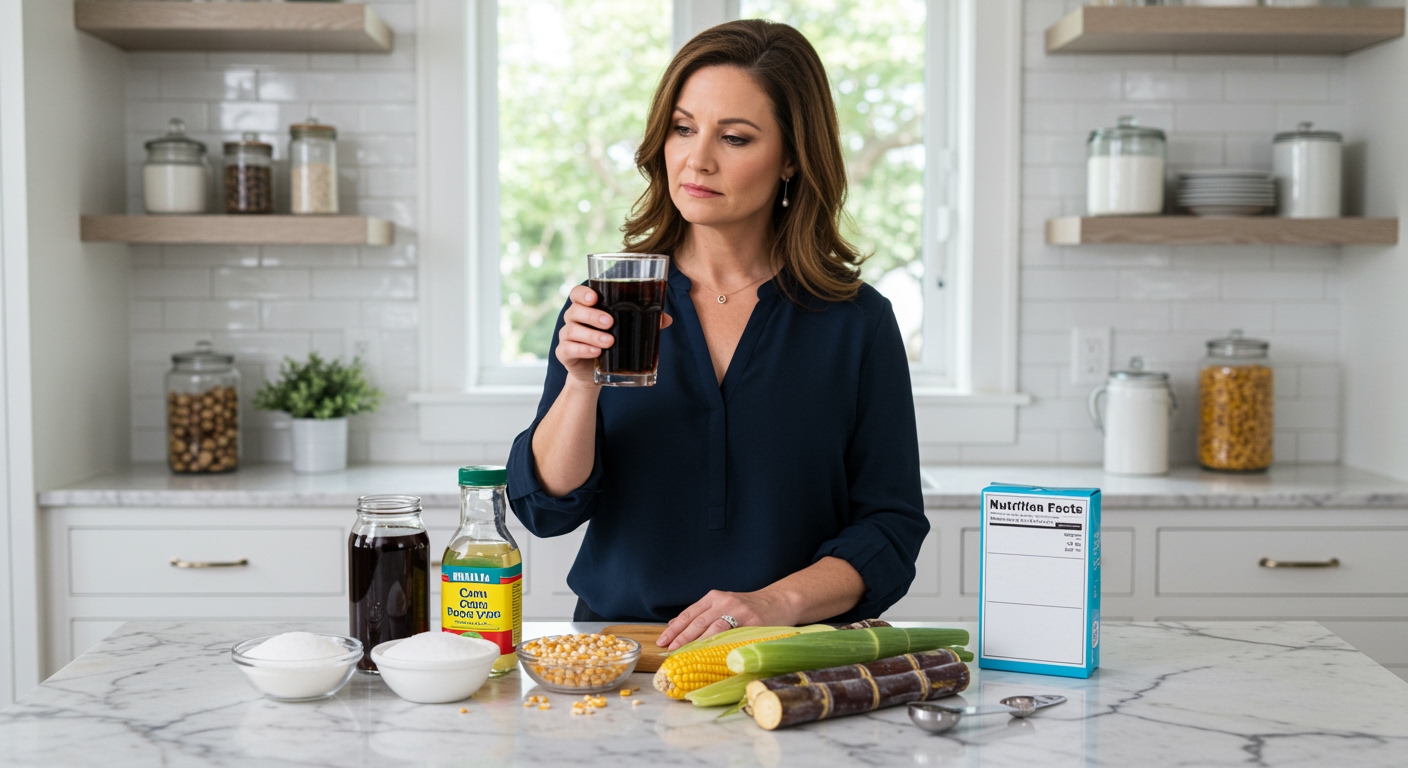✪ Key Highlight: Coca-Cola switches back to cane sugar from corn syrup, but both sweeteners pose similar health risks.
Introduction
Your favorite cola just made a major ingredient change that has everyone talking.
Coca-Cola announced it will switch back to using cane sugar instead of high fructose corn syrup in its classic recipe across the United States.
Hi, I’m Abdur, your nutrition coach and today I’m going to analyze this significant beverage industry development and what it means for your health.
Why Did Coca-Cola Make This Switch?
The original switch from cane sugar to high fructose corn syrup happened in the 1980s for purely economic reasons.
Government subsidies made corn syrup significantly cheaper than imported cane sugar due to trade tariffs.
This business decision saved the company millions of dollars annually while maintaining similar sweetness levels.
Now, consumer demand for more natural ingredients is driving companies to reconsider their formulations.
Many people associate cane sugar with being less processed and more traditional than corn syrup.
✪ Fact: High fructose corn syrup was introduced to reduce production costs, not improve health benefits.
What Are The Taste Differences?
Many consumers claim that cane sugar Coca-Cola tastes cleaner and more crisp than the corn syrup version.
Cane sugar provides a sharper sweetness that hits your taste buds differently than the smoother sweetness of corn syrup.
High fructose corn syrup tends to create a slightly thicker mouthfeel and lingering aftertaste that some people find unpleasant.
The molecular structure differences between these sweeteners affect how your taste receptors process the flavors.
Cane sugar breaks down into equal parts glucose and fructose, while corn syrup contains higher fructose concentrations.
This chemical difference explains why people notice distinct flavor profiles between the two formulations.
✪ Pro Tip: Taste preferences are highly individual and influenced by childhood memories and cultural associations.
Are There Real Health Differences?
Scientific research shows minimal health differences between cane sugar and high fructose corn syrup when consumed in equal amounts.
Both sweeteners provide approximately 4 calories per gram and cause similar blood sugar responses in your body.
Your digestive system breaks down both sweeteners into glucose and fructose molecules that enter your bloodstream identically.
The liver processes these sugars through the same metabolic pathways regardless of their original source.
However, excessive consumption of either sweetener contributes to obesity, diabetes, and cardiovascular disease risks.
The American Heart Association recommends limiting added sugars to 25 grams daily for women and 36 grams for men.
One 12-ounce can of Coca-Cola contains approximately 39 grams of added sugar, exceeding daily recommendations.
✪ Note: The source of sugar matters less than the total amount you consume throughout the day.
What Does This Mean For The Industry?
This switch will significantly impact both the sugar and corn syrup industries across America.
Sugar producers will likely see increased demand and potentially higher prices for their products.
Corn farmers and high fructose corn syrup manufacturers may experience reduced sales volume from major beverage companies.
Other beverage companies will probably follow Coca-Cola’s lead to remain competitive in the marketplace.
This trend reflects broader consumer preferences for ingredients perceived as more natural and less processed.
Marketing departments across the food industry are watching this development closely to understand consumer sentiment.
✪ Fact: Nostalgia marketing can increase brand loyalty and sales even when product changes are minimal.
The Bottom Line
Coca-Cola’s return to cane sugar represents a marketing strategy that capitalizes on nostalgia rather than delivering meaningful health benefits.
The real issue is not which sweetener companies use, but how much added sugar we consume daily from all sources combined.
I encourage you to share your thoughts about this beverage industry change and any questions about sugar consumption in the comment section below.
References
At NutritionCrown, we use quality and credible sources to ensure our content is accurate and trustworthy. Below are the sources referenced in creating this article:
- Los Angeles Times: Trump, Coke, Redskins, Nostalgia Opinion
- YouTube: Coca-Cola Sugar Switch Video
- YouTube: Cane Sugar vs Corn Syrup Discussion





